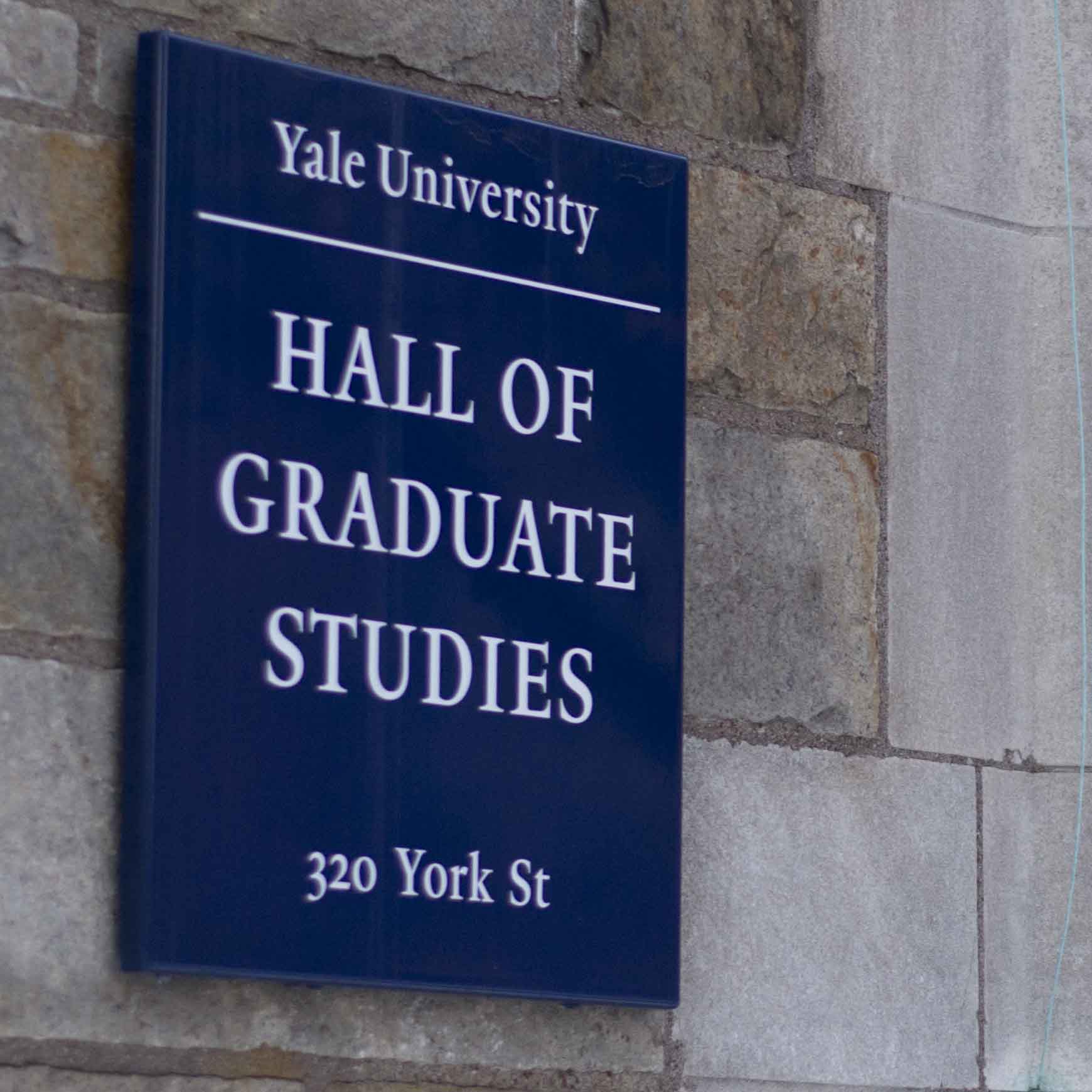
After months of speculation about the future of the building, the Hall of Graduate Studies is set to transform into a new home for the humanities through a $50 million gift, the single largest donation ever made to the humanities at Yale.
The anonymous gift, which was announced Tuesday, will go toward renovating and refurbishing an aging building in need of repair. Furthermore, a report released online the same day from the HGS Exploratory Committee, which was tasked last year with assessing whether a central home for the humanities would be desirable to faculty and students, recommended that the University move forward with the ambitious project.
Taken together, the gift — which ranks among the largest gifts to the humanities in the history of American education — and the committee’s approval of a humanities center signal a renewed commitment to a field that many academics have worried is faltering.
“This is a spectacular gift for the humanities,” Faculty of Arts and Sciences Dean Tamar Gendler said. “We are at a time, as far as national rhetoric, where the public commitment to the humanities isn’t as strong as it should be.”
The exploratory committee’s Tuesday recommendation puts to rest nearly 10 months of speculation and debate over HGS’s future. During that time, faculty and students considered whether the humanities should unify in a single building or continue existing in different corners of campus. Ultimately, the committee decided that the current placement of humanities departments can inhibit collaboration across disciplines.
Even University Provost Benjamin Polak himself said he was not able to anticipate what the committee would recommend.
“I didn’t know what they were going to say,” Polak said.
The $50 million gift is being split into three parts. $30 million has been set aside for the purpose of helping renovate the physical building, including installing new ventilation, repairing plumbing and implementing a host of other necessary upgrades to the 83-year-old structure.
However, the cost to fully renovate HGS will “considerably exceed” this amount, which means Yale must commit significant resources to support the project, Gendler said. Though she did not specify the total estimated cost, she said Yale is ready to supply the necessary funds, adding that the University is seeking out other potential donors.
Another $10 million has already been added to an endowed fund that will pay for high-profile visitors to lecture, teach and hold office hours. The remaining $10 million will fund any smaller changes to HGS facilities and spaces that faculty and students desire.
Gendler speculated that the $50 million gift may even be among the largest donation to the humanities from a single individual in the history of American higher education, noting that it is certainly the largest in recent memory. Last year, Cornell University announced a $5.2 million gift toward postdoctoral fellowships in the humanities and social sciences. Harvard’s humanities center also recently received a gift of $10 million.
The donation builds on a $25 million gift given last March by Lisbet Rausing and Peter Baldwin ’78 for the refurbishment of the 14-story tower atop HGS. They also asked that the tower be renamed after Yale’s Chief Investment Officer David Swensen.
The exploratory committee has now been dissolved and a new committee formed to plan the finer details of what this new home will look like. The new “320 York Street Planning Committee,” which includes faculty members, graduate students and two undergraduates in the humanities, must come up with a plan by the spring so that Yale can hire architects and begin designing the new space, Polak said.
The gift comes at a time when Yale’s humanities have come under renewed scrutiny, specifically in the departments focusing on race, gender and identity. Divisional Director of the Humanities and English professor Amy Hungerford, who chairs the 320 York Committee, said the stream of distinguished visitors made possible by the gift will allow Yale’s humanists to explore areas of intersection between the humanities and other disciplines.
“Discussions of cultural diversity on campus this year have made it clearer than ever that the study of human culture across time is essential to a just society,” Hungerford said.
Hungerford stressed that although she does not believe Yale has a “crisis of the humanities,” many schools nationally have seen a decline in their humanities resources, a trend that was exacerbated by the economic downturn of 2008 and by historical shifts in the interests of students.
“At Yale we have the opportunity to share the news about what makes the humanities essential to modern life,” Hungerford said. “Having a central home for the humanities will make faculty collaboration in the classroom easier and more likely.”
Religious Studies professor Kathryn Lofton, who sits alongside Hungerford on the 320 York Committee, said she hopes the new humanities hub will bring together scholars with many different perspectives, allowing them to find common ground across disciplines.
“Scholars within the humanities pursue many different things,” said Lofton, adding that these scholars are united by a common project: “to perceive how individuals imagine, create and interpret the worlds they occupy.”
Lofton, too, said she saw the gift as an affirmation of the humanities, not only at Yale, but nationally as well. Yale should place the humanities at the center of the liberal arts, she said. She added that humanities courses prepare individuals to understand themselves as leaders, and that regardless of what students pursue professionally after college, they will all need to engage with the world as interpreters.
The eventual redesign of the space will likely be multi-purpose, Hungerford said. The building will ideally have space for public and private events as well as daily social interaction over coffee and food, she added.
The Hall of Graduate Studies was designed by architect James Gamble Rogers in 1932.







